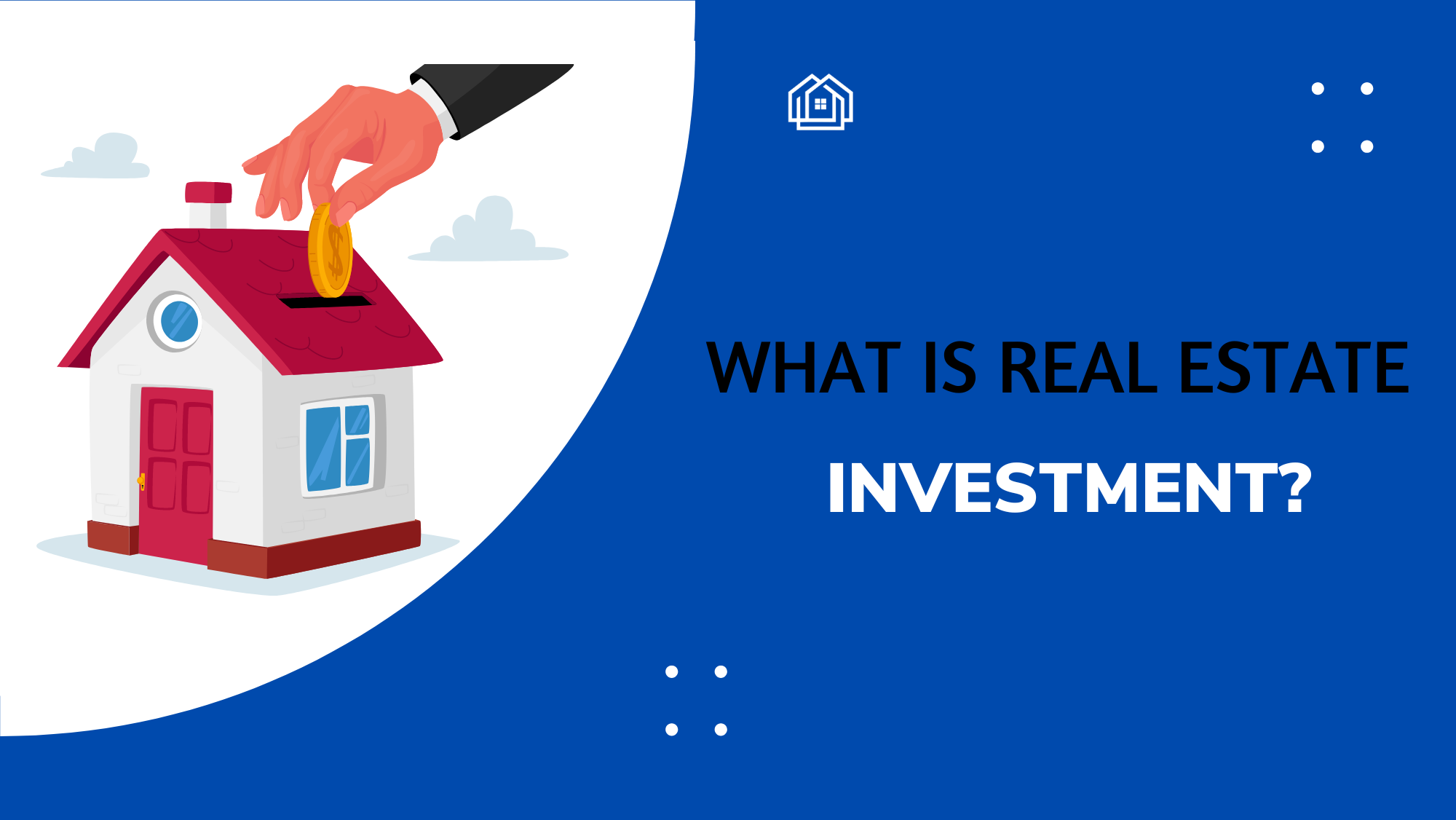Definition
Real Estate investing is the act of buying property to sell or rent to generate income in the future. It is contrary to purchasing property primarily for residential purposes. In other terms, it refers to any infrastructure, land, or other physical transferable but immovable properties.
Below are some examples of Real Estate investment properties:
- Commercial plots
- Homes
- Agricultural land
- Office buildings etc.
Real Estate investment falls under two major categories; physical and non-physical assets. However, these two are subdivided into several categories.
Types of Real Estate Investment
Below are the various types of Real Estate investment.
1. Crowdfunding Platforms
While crowdfunding platforms offer real estate investments with high returns, their risks are significantly increased. Additionally, some of these platforms are only accessible to accredited investors. Real Estate experts refer to these individuals as investors with a net worth or a joint net worth with their spouses. They have over $ 1 million, exclusive of the value of their home.
However, please note that crowdfunding platforms’ track record is short. On the other hand, there are other platforms that non-accredited individuals can access. Moreover, others offer investors access to investments they would otherwise be unable to invest in; these usually come in the form of nontraded REITs.
2. Raw Land
Investors purchase vacant land for residential or commercial developments. However, you must do proper research before purchasing raw land, especially if you want to develop it yourself. Land investment is suitable for investors with significant capital, intensive knowledge, and an understanding of the Real Estate market.
It would help if you had a deep understanding of the following Real Estate aspects:
- Zoning regulations
- Building codes
- Flood plains
Moreover, it is crucial to understand the local commercial and residential rental market. With these requirements, you can succeed with this type of realtor investment.
3. Commercial Real Estate
Commercial real estate investment refers to renting or leasing space for business purposes. The following are some examples of commercial real estate investments:
- A building rented to a single business
- Strip mall with many unique businesses
- Gas stations
- Leased restaurants
Each of these businesses pays rent to the property owner unless the company owns the property. Retail and industrial real Estate fall under this category.
Industrial real Estate is the property for storing and producing goods rather than selling. They include factories and warehouses.
Retail real Estate refers to spaces where people can purchase commodities; an example is a clothes store.
The best thing about commercial property investment is that they have more extensive leases and attract higher rent than residential ones. Consequently, a commercial property investor is sure of a longer-term and steadier income. However, they incur higher property maintenance, management expenses, and down payment.
4. Residential Real Estate Investment
Residential Real Estate refers to any space where people stay or live. They include condos, single-family homes, and vacation homes.
Investors in this type of realtor investment earn their income from collecting short-term rent from tenants. The revenue comes through the property’s appreciated value between the time they buy the property and when they sell it, or at times both.
There are many ways an investor can take up residential real estate investment. For example, you can rent a spare space in your property or go through the complex method of buying and flipping a property for a profit.
5. REITs
They are companies, and corporates that own fundamental commercial properties. You can join these bodies by investing in their shares on a stock exchange.
Investing in these companies means investing in their real estate properties while evading the risks of owning and managing the properties yourself.
Investors should expect REITs to return at least 90% of their annual taxable income. It means that venturing into this type of real estate investment can earn you attractive dividends besides diversifying your portfolio in Real Estate.
Moreover, REITs provide more liquidity than all other forms of real estate investment. For instance, if you need emergency cash, you can sell your shares to another investor on the stock exchange.
Furthermore, investing in Real Estate Investment Trust is straightforward; you only need a brokerage account.
6. House Flipping Investment
House flipping means property not in a proper state for use and renovating for reselling to earn profits. Adequate research and flipping in the right way can give you satisfying returns.
Similarly, a wrong approach in house flipping can cause you significant losses. Many flip investors fall into disastrous mistakes by overestimating and underestimating the property’s after-repair value.
Many only take the contractor’s quotation word without considering the frequent expenses along the renovation process.
Another common mistake in this investment is ignoring minor expenditures such as the carrying and marketing costs.
7. Real Estate Stocks, Mutual Funds, and ETFs
While many real estate investments require direct property ownership, settlements, and contracts, there are a few exceptions. Many significant economic segments flourish when the real estate sector is thriving.
Therefore, you can easily invest your money indirectly into real Estate by investing in organizations that thrive in the thriving real estate sector.
For example, lumbering, home improvement retail chain, hotel chain, and brokerage companies thrive best when real Estate is booming.
You can gain significant returns by investing in real Estate through these companies. You can invest by purchasing exchange-trade funds and shares in these companies through your broker.
8. Live-in Flips
Live-in flip means moving into a fixer-upper and updating it within a year or two, then selling it at a profit.
The better part of this investment is that you can do the renovation at your own pace. Additionally, you can consider DIY repairs to save money and increase profits.
Moreover, it helps evade short-term capital gains and, in some cases, all capital gains taxes.
Owning a property for over a year allows you to pay lower long-term gains on capital rates on profits. The downside of this venture is that you have to live in a semi-permanent structure during the renovation process.
Nevertheless, it is the best real estate investment for beginners, especially if you value home improvement projects.
Summary
Real Estate is among the most promising ventures. Suppose you want to join the industry; identify the best realtor estate investment that suits you.



